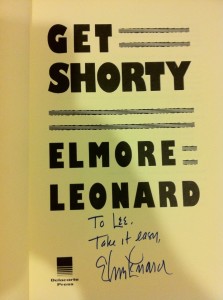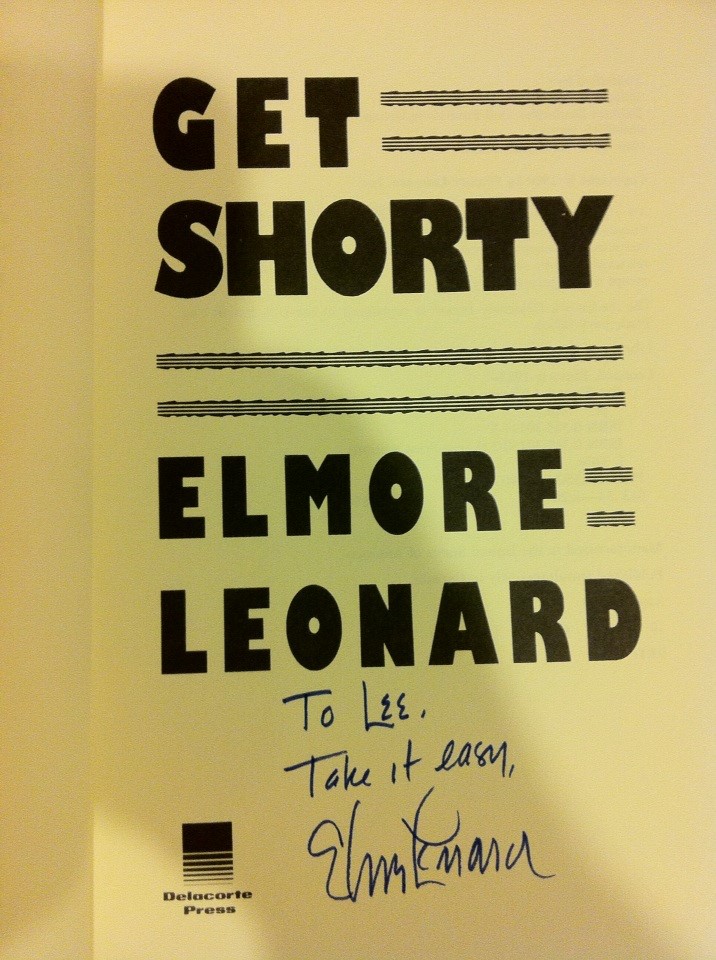 Elmore Leonard died today…and just about every crime writer in America owes some debt to him in their writing. I’m one of them.
Elmore Leonard died today…and just about every crime writer in America owes some debt to him in their writing. I’m one of them.
The wonderful thing about Leonard’s writing is how unobtrusive it is…it gets out of the way and puts you right there with the characters. And oh, what great characters they are, each one every bit as rich and complex as those in “literary fiction,” emerging through action and dialogue rather than belabored, self-conscious prose. He knew the power of simplicity and humor to convey character, ethical issues, and the often contradictory impulses that shape what we do. His characters are never simply good or bad. Even the most vicious sociopath in one of his stories can be surprisingly likable, gentle and polite in certain situations. His cops and marshals were often more bloodthirsty and lawless than the criminals they pursued. I return to his books not just for the pleasure of a great story well told, but to learn how to say more with less (something I’ve failed to do here) and to use humor to reveal character.

He died. Man the people I grew up with are dying theses days. Man. And he’s books are so damn good that once I finish reading it, I go back to the biginning. He will be missed.
Very sorry to hear this. He had a unique talent and wrote in a style all of his own. One of his contributions, that I know of, was to introduce into crime fiction “the character that doesn’t get it.” In most stories, all of the characters get all of the ideas that all of the other characters bring up. Everybody understands everybody else. But Dutch saw that in real life, lots of times there are misunderstandings and different levels of comprehension. His heroes, like Chili Palmer in “Get Shorty” and “Be Cool,” show their humanity in the way they help out the less intelligent. This could also be the source of his unique sense of humor, which also deepened the divide between characters and added a deeper level of reality to his work. In “The Gold Coast,” the point of the entire story is that the hero comes to realize the true nature of his love interest, which is a pretty unique conclusion for a crime story. He was one of those persons, like Robert B. Parker, who anchored his genre, who provided reassurance and direction for other writers by his work. Wherever his spirit now is, he’s working on another story and I hope I get to read it.